A serious case of ‘anti-China’ virus: how Beijing views the Australian election
Days before Anthony Albanese announced an election would be held on May 3, there was a rash of excited commentary on the Chinese internet: was Beijing preparing to seize Australia?
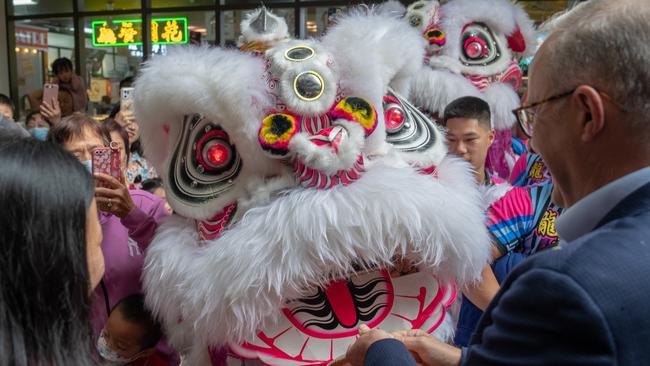
Days before Anthony Albanese announced that an election would be held on May 3, there was a rash of excited commentary on the Chinese internet: was Beijing preparing to seize Australia?
The circumnavigation of Australia by a flotilla of People’s Liberation Army Navy vessels had set China’s keyboard warriors into a frenzy. Many cheered as PLA ships engaged in live fire drills in the Tasman Sea.
Some argued their government was engaging in a dress rehearsal before “nabbing” the Australian continent and its strategically important resources.
Others lamented that years of propaganda and patriotic education had warped many of their compatriots.
“The Russian-Ukrainian war has had such a profound impact on the Chinese mindset that many Chinese no longer feel the need to conceal expansionist aims, and unabashedly advocate putting them into practice. This is truly something I never expected,” one commentator wrote in an essay translated by China Digital Times, a website that archives sensitive topics on the Chinese internet before they are scrubbed by Beijing’s censors.
After the great din about the flotilla has come near-silence on the Australian election. Coverage in Chinese media has been threadbare as the trade war with US President Donald Trump – and Beijing’s attempt to enlist countries, including Australia, into an anti-US free-trade bloc – monopolises attention.
Chen Hong, director of the Australian Research Centre at Shanghai’s East China Normal University, said the lower profile was a result of the improvement in relations. “When a relationship is in crisis, people look at it more often,” he told The Australian.
However, as the storm in Australia and China over the PLA Navy’s election-eve southern expedition dramatically revealed, even after three years of “stabilisation”, this relationship remains coiled in tension.
China has been everywhere in the Australian campaign. How that plays out may be pivotal, as a dozen or so marginal seats with high numbers of Chinese-Australians could determine the outcome.
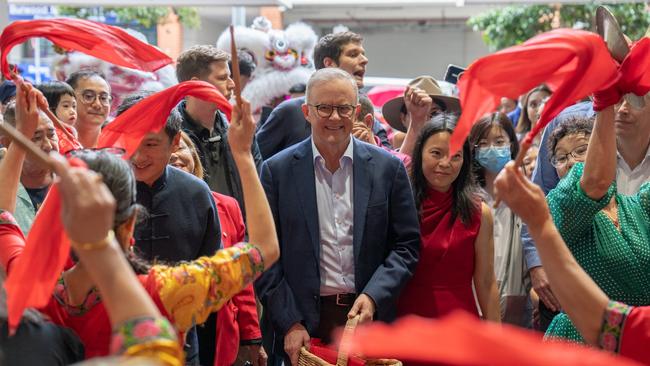
The first week was dominated by a Chinese scientific survey ship, which sailed across Australia’s south and up its west coast in the wake of the PLA flotilla. The final week has been roiled by claims of allegedly United Front-linked campaign staff working for teal Monique Ryan and Labor’s Housing Minister Clare O’Neil.
In between, Peter Dutton and Anthony Albanese tried to outdo each other in being the first to announce that if elected, they would take back the Port of Darwin from its Chinese owner, Landbridge.
Even this decision – which in the Morrison-era would have set off a tempest of angry propaganda – provoked only a single sentence from China’s Foreign Ministry. “We urge the Australian side to provide a fair, non-discriminatory and predictable business environment for Chinese enterprises investing and operating in Australia, and refrain from overstretching the concept of national security or politicising normal business co-operation,” Chinese Foreign Ministry spokesman Lin Jian said.
It is a notable change from Beijing’s approach ahead of the 2022 election, conducted as the Xi government continued a more than two-year-long communication freeze of the Morrison government, waged a coercion campaign on Australian exports previously worth $20bn and as state media, and China’s Foreign Ministry, lobbed personal criticism of Scott Morrison and Dutton, his then defence minister.
Senior Australian officials were in no doubt who Beijing was campaigning for, despite its claims to “always uphold the principle of non-interference in other countries’ internal affairs”.
This election, Beijing has been less blunt, although state media has offered insight. Before Albanese met President Xi Jinping at the G20 in Brazil last November, the party-state’s leading English language masthead, the China Daily, praised the Australian Prime Minister’s “strategic autonomy” and urged other leaders to use his approach as a “useful reference”.
In one of the few pieces published by Chinese state media during the election, the Global Times accused Dutton of “beating ‘the drums of war’ against China” – a phrase also used in a speech in Mandarin by NSW Labor MP Jason Yat-sen Li, a clip of which has been widely circulated among Chinese Australian voters on Chinese-owned social media sites WeChat and RedNote.
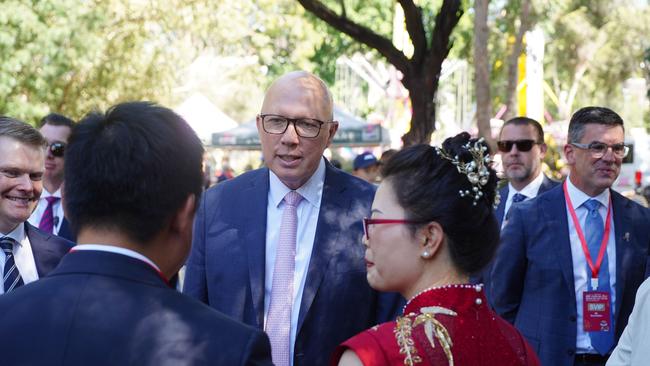
Lowy Institute senior fellow Richard McGregor met in April with Chinese officials and academics in Beijing and Shanghai. “The people most focused on the election were officials at the Communist Party’s international liaison department, but that’s not surprising as it is their job to track foreign political parties,” he said.
“No one I spoke to in China was gauche enough to suggest they favoured one side or another, but the state media coverage, such as it is, makes it clear Beijing is happier dealing with Albanese than his predecessor.”
A strange amnesia pervades the relationship in China. Even many well-educated, internationally focused Chinese have told The Australian they do not understand how relations ever got so bad.
Chinese analysts of Australia leave many confused, as they omit China’s use of sharp power from their accounts of the relationship. Some have told The Australian the political environment has constrained what they are able to write. Others avoid public commentary on Australian politics entirely.
Su Tiping, director of the Australian Research Centre of Xi’an International Studies University, has written one of the few lengthy pieces on this election. Published a fortnight ago in the China Youth Daily, the official newspaper of the Communist Youth League of China, he did not mention the PLA flotilla (or the rash of enthusiasm about it on China’s internet), Beijing’s punishment campaign in the Morrison era or any of the other causes of Australian unease.

Instead, the professor characterised the bipartisan Port of Darwin decision as a “conspiracy between the US geostrategy and Australian electoral politics”, which exposed the “normalised abuse of ‘anti-China’ tools in Australia’s political ecology”.
Part of the problem, he argued, was the muddle-headedness of the Australian public.
“A 2024 poll by the Lowy Institute, an Australian think tank, showed that 63 per cent of the country’s people viewed China as a ‘threat’, but 58 per cent opposed economic sanctions against China. This contradictory mentality is precisely the epitome of the national identity crisis in the era of globalisation,” he wrote.
It is a mental affliction that goes all the way to the cabinet room, according to the professor. “When the Albanese government enjoyed the economic dividend of $220bn in China-Australia trade while co-operating with the US military in the South China Sea, the confusion of its policy logic has been fully exposed,” he wrote.
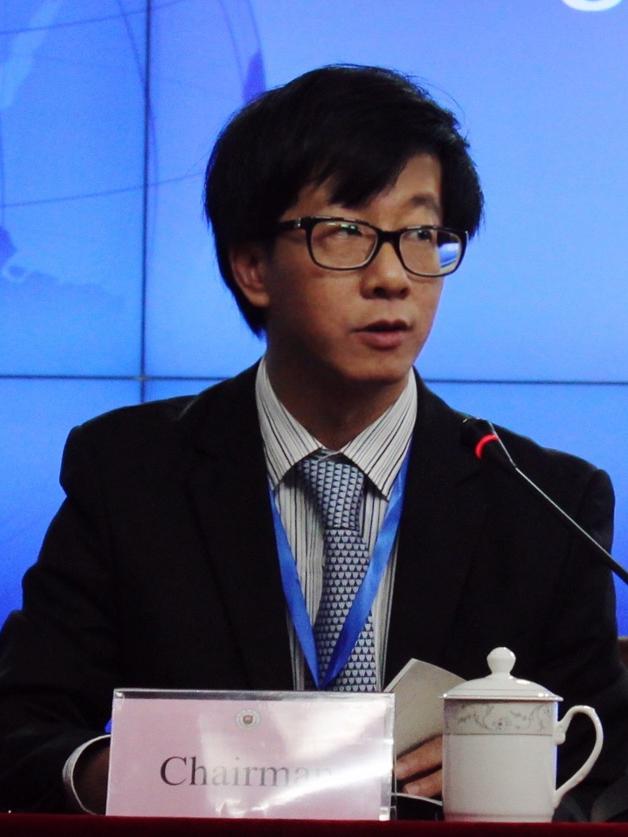
Professor Chen, the Shanghai-based Australian expert, said confiscation of the Port of Darwin would damage the relationship but he was mostly full of praise for an election he said demonstrated the “vibrancy” of Australian politics, which were in a much more “healthy” state than the US and other democracies.
However, in yet another sign of how far from normal Australia’s relations are with China, Professor Chen – China’s most widely quoted Australian expert – said he still had no update on whether he was allowed to visit Australia.
In 2020, he had a visa stonewalled based on advice from Australian intelligence agencies, which said he was linked to a foreign influence investigation.
Professor Chen said he had not tried for another visa, despite the diplomatic improvement. “I don’t want to spoil my mood,” he said.


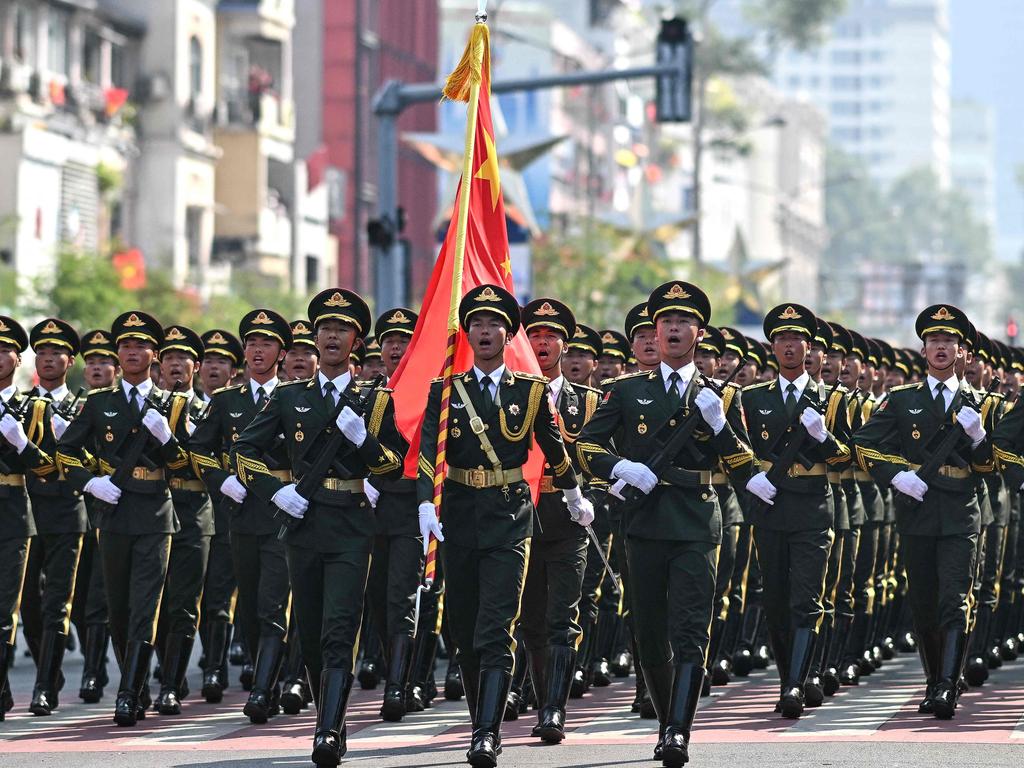
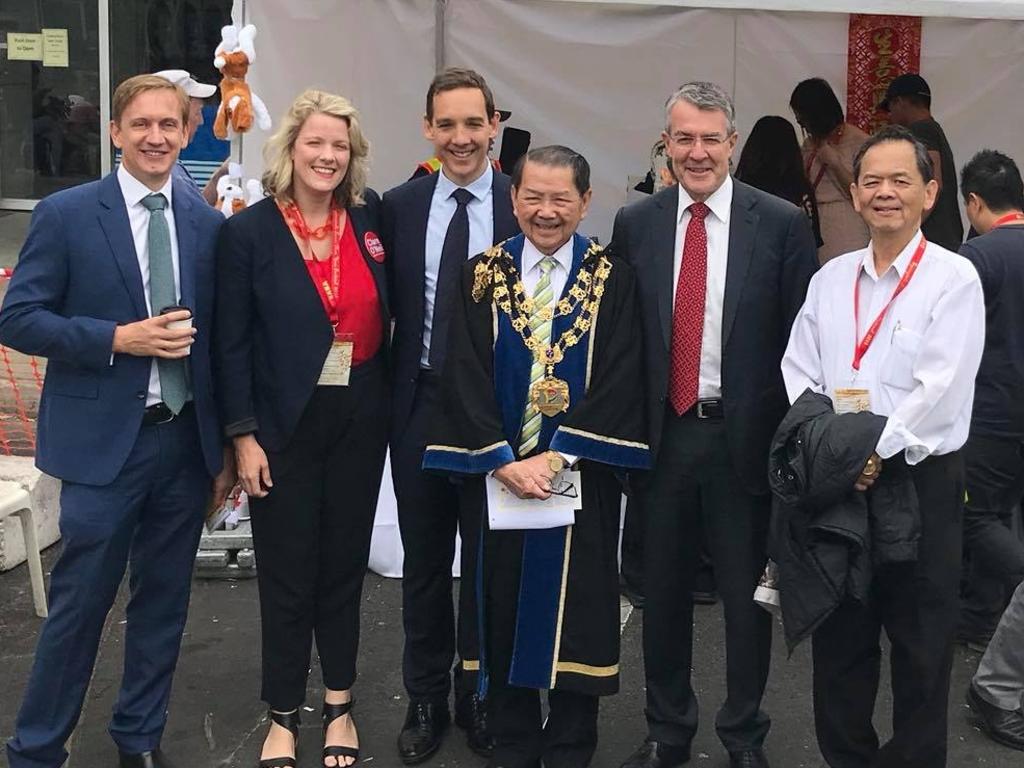


To join the conversation, please log in. Don't have an account? Register
Join the conversation, you are commenting as Logout